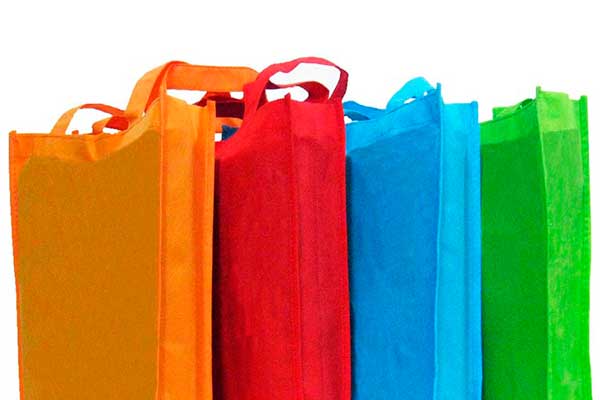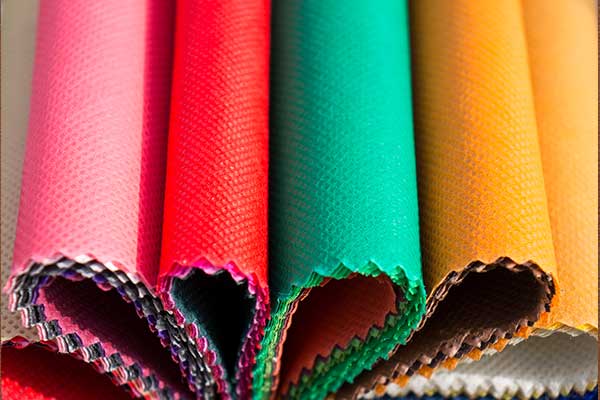What is nonwoven fabric?
Nonwoven fabric is a textile material which, as its name suggests, has not been woven. The fibres are produced by mechanical, thermal and chemical processes.
This prevents the fabric from fraying. This material is perfect for making all kinds of products that we use in our everyday lives. It was created in the 1930s.

Non woven fabric uses and characteristics
Non-woven fabric textile is used in a number of industries. Its various characteristics make it particularly suitable for the manufacture of disposable medical garments and a variety of hygiene and care products for the very young, such as nappies.
It is also used in the industrial sector, in the manufacture of filters for example, and in the food sector. Finally, in the world of promotional gifts, it is often used to make personalised tote bags (but not only!).
What are the advantages of non-woven cloth?
The longevity of products made from non-woven material varies. It all depends on how you use them: these items can last a long time or be disposable, depending on your needs.
It is common to find this component mixed with other materials, giving it greater durability and a wider range of applications. Non-woven textiles are characterised by their elasticity, softness and strength. Its value for money makes it a very attractive product for a variety of industries.
Objects made from non-woven fabric material
In the world of promotional gifts, non-woven is used above all in the manufacture of reusable bags, often given away at trade fairs or conferences. Most of these are iron-on: they are not sewn together but 'welded' together by heat and pressure. Other promotional gifts often made from this fabric include drawstring bags or sports bibs, perfect for schools and sports clubs.
If your business is linked to the hotel industry, don't miss out on non-woven slippers; easily customisable with your establishment's logo, these soft, comfortable slippers will keep your customers happy.
How much does a non-woven fabric product cost?
Non-woven textiles are relatively inexpensive. What's more, if you take its cost and strength into account, the balance is positive. It is used in the manufacture of everyday products.
For the same product, the price of natural non-woven fabric is generally lower than that of cotton (bear in mind, however, that non-woven fabric is less resistant than cotton). As we have already said, the price and characteristics of non-woven fabric cloth make it the perfect material for your textile promotional gifts.

